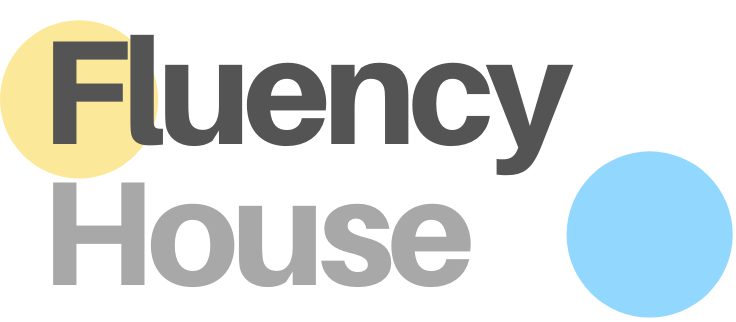
Choosing the right Dutch course is a highly personal decision. It’s also an important one. After all, your choice will influence both your motivation and your progress. But if you’ve never taken language courses, the selection process can seem confusing. So, to help you with your search, we will take a closer look at one popular option in Amsterdam…the free Dutch courses offered by the city.
That’s right. Free Dutch courses. In Amsterdam. Now this might sound too good to be true, but proceed with caution. Just because these Dutch courses are free, doesn’t mean they’re right for everybody. Read on to find out who the courses are aimed at, what past participants had to say, and some practical information before you register.
Who is eligible for a free Dutch course?
There are many reasons to learn Dutch. Maybe you want to build your career in Amsterdam, make Dutch friends, or develop a deeper connection to the Dutch culture. Either way, these courses are aimed at European citizens who want to stay in Amsterdam for the long term. This means if you’re looking for a Dutch crash course or you’re here temporarily, this program is not for you. Keep in mind that the city is investing a lot in each participant (one source said the course is valued at €3.000), and expects some commitment on your part. Mainly, the Gemeente offers these courses for free to help you integrate into Dutch society, and naturally, not everyone will qualify.
Firstly, if you are in Amsterdam as an expat and make use of the 30% tax ruling, you are NOT eligible for free Dutch courses. To qualify, you must be an EU citizen and a resident of Amsterdam, or in the case of non-EU residents, have completed the civic integration course.
Secondly, to attend the Dutch courses for free, students must be present for at least 80% of the classes. You must also complete a portfolio to demonstrate out-of-class learning and some knowledge of the Dutch culture. This could include photos, a video, a recording of a conversation you’ve had in Dutch, short descriptions of your favourite places in Amsterdam, and the like.
Lastly, you must pass the final Dutch exam. You are expected to pass at the level you’re placed in, though it may be possible for some to finish with different marks across the four core skills: reading, writing, speaking, listening. This will depend on your initiative and your teacher’s evaluation.
How do I join a Dutch course?
The Dutch language placement test
Once you register interest in a Dutch course, the next step is a placement test. You may have to wait a few weeks for your invitation to the test (sometimes even a couple of months), depending on the wait list and when the courses start. Apart from testing your Dutch language skills, you will be given a separate test to see what type of learner you are. This portion mainly involves logic, spotting patterns, and following instructions. You can read more about language levels here.
If you have never studied Dutch before, you will likely be placed in the starter course, Dutch for beginners. Here, you will learn the basics of the Dutch language, and start with simple phrases for a variety of everyday situations.
The courses get a bit more interesting from level A1 on. There are some special-focus courses available, such as “Dutch for work” or “Dutch for administration”. The advanced courses are still free, and aimed at participants from language level A2 (but under B2) who want to further develop their language skills.
Starting your Dutch course
The next step is to wait for your Dutch course to start. There are several locations in Amsterdam and the administration will do their best to place you close to home. Once you are invited to join a course, you will be expected to attend two three-hour lessons each week, with 50 classes in total. This may take longer than 6 months to complete as there are some breaks during holiday periods. What this means is you must be patient and carefully evaluate your availability. Be prepared to wait for your course to begin and make sure you can meet the attendance requirements. The government takes attendance quite seriously, though under special circumstances, past participants have been allowed to miss more than 80% and still pass.

Practical tips if you have never studied Dutch
Sometimes it’s hard to find people to talk to in your target language. This can be a challenge even in Amsterdam, especially for a beginner. Nearly all locals are bilingual, and some foreigners find it difficult to practice Dutch here. For that reason, many students feel that the best solution is to sign up for a Dutch course and speak with the teacher.
Keep in mind that we are talking about a free Dutch course sponsored by the government. As one might imagine, the class size is larger than at most private academies. This means that the teacher may not have time to devote to a full class, and you probably won’t get to talk to them individually very often. Also, the biggest complaint from the beginner Dutch course participants we surveyed was that the teacher relied heavily on English explanations. With that said, it’s likely that a few participants will drop out as the course goes on (usually if they move or change jobs), and as everyone gains some basic knowledge you’ll get more chances to interact with the teacher in Dutch.
To sum up, the Dutch for beginners courses will help you learn a base of vocabulary and grammar, but it won’t turn you into a fluent Dutch speaker. So, set your expectations accordingly. If you are a complete beginner and in a rush to start speaking ASAP, you may want to consider a private tutor or a small group course.
Things to consider before signing up for a Dutch course
Reflecting on my personal experience, my only regret is that I had no strategy going into the Dutch placement test. I had started doing Duolingo to prepare myself, and though it was a huge help, it just wasn’t enough. I was able to get through the reading and writing (a short letter inviting a friend to do something at the weekend), but I completely froze up when it came to the speaking. That was my biggest mistake. If you keep in mind that the end goal of the A0-A1 Dutch course is to be able to understand basic questions and give short, yes/no or one-to-five-word answers, this is completely doable if you use the right tools. If you are stubborn and consistent, you can at least make the examiner doubt whether you’re a complete beginner or A1. If on top of that you show that you’re a fast learner, you can try to get into the A1-A2 Dutch course (happened to a friend of mine whose level was a low A1). Trust me, it’s worth the effort.
My suggestions: study up before the placement test! Try your best to get placed into at least A1. You will get much more out of the experience, you’ll likely wait less for the class to begin, the teacher will be using Dutch with you right away, and you’ll get to speak some Dutch too. Because in the end, that’s the most important part!
You’ve finished your Dutch course, now what?
Upon successful completion of your Dutch course, you will be presented with a final certificate. There is even a small ceremony where you can celebrate your new Dutch skills with your classmates. And of course, you are encouraged to keep learning Dutch. It’s understandable that you’d want to take a bit of a break, but you will be invited to take another free Dutch course at a higher level. You can decide to postpone your enrollment to a future date, as the administration is quite friendly and flexible.

Resources to Help You Learn Dutch Faster
- Dutch word order: this is something I really struggled with. Frankly, I’m not sure why this wasn’t handed out on the first day of the Dutch course. It’s been extremely useful, and it’s written in a way that everyone can understand. Download the PDF here.
- Duolingo Dutch: it starts out slow but there’s a reason this app is consistently ranked as one of the best. I’ve been slacking lately so let’s start a club to keep each other accountable! (Look for “Dutch in Amsterdam” in the Clubs section)
- Pimsleur: this is a series of audio-based courses that presents phrases in the Dutch language first, and then in English for you to translate into Dutch. They present the material in a way that cuts confusion and information overload, and you’ll be speaking from the very first lesson. You can try a free Dutch lesson here.
- YouTube: Learn Dutch phrases with Bart de Pau! Listen and repeat with these short, practical lessons from learndutch.org.
Sign up for a course
If you are interested in joining one of the free Dutch courses, the easiest way to register is to fill out a form online (in Dutch).
For more information, download the brochure with more details about the free Dutch courses in Amsterdam.

